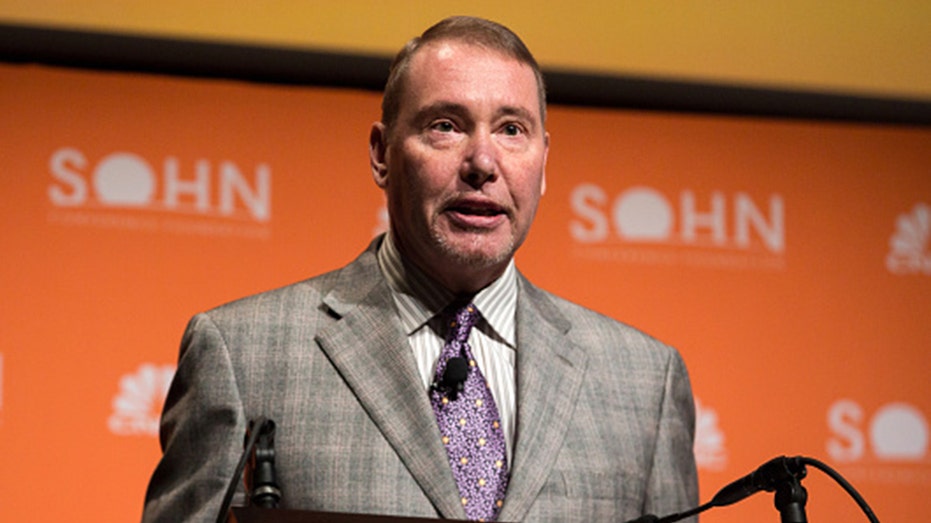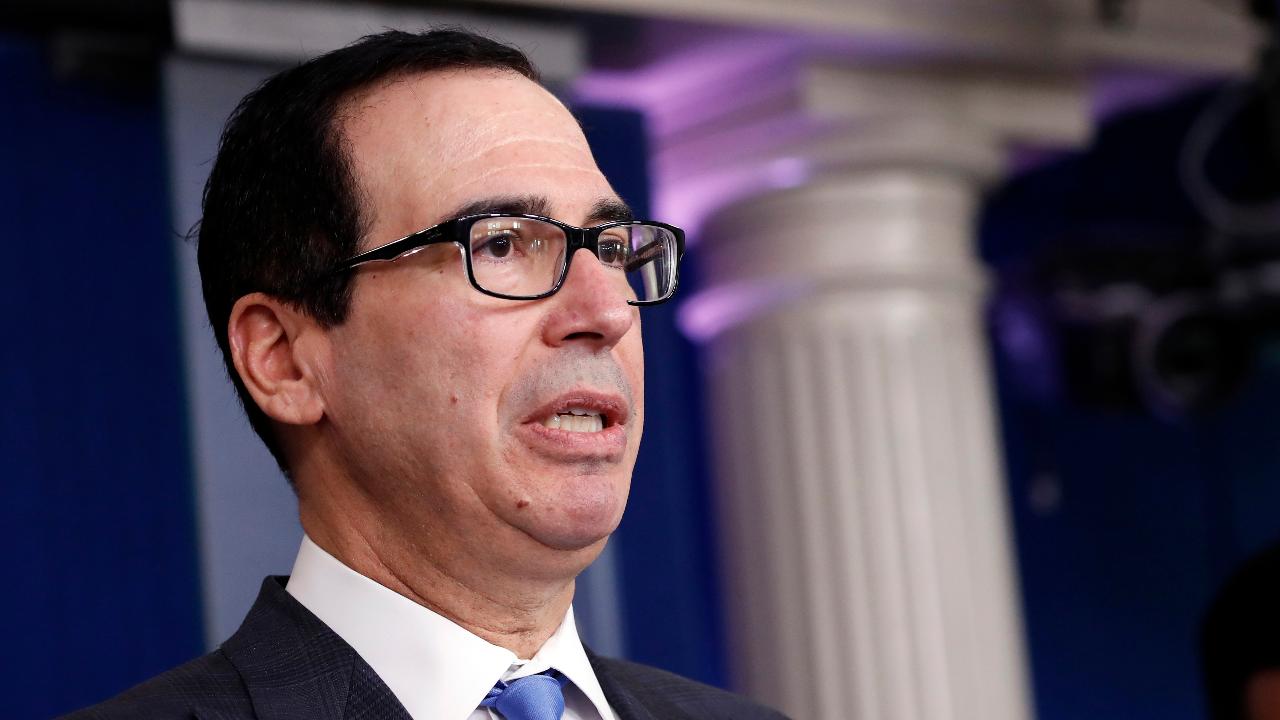'Bond King' Jeffrey Gundlach explains soaring yields after Fed rate cuts
'All of this stimulus is a massive amount of bonds'
Billionaire “Bond King” Jeffrey Gundlach says the action in the bond market suggests bailouts to prop up the U.S. economy from the COVID-19 pandemic are not only coming, they're going to be big.
The benchmark 10-year yield finished Tuesday’s session at 1.07 percent, more than 75 basis points above the record low reached on March 10. Bond yields, which are the returns an investor realizes on a bond, rise as prices fall.
“I think that's because the market is wrapping its head around the fact of how much stimulus there might be, how many bonds there might be,” Gundlach, CEO and chief investment officer of Los Angeles-based DoubleLine Capital, said on a webcast on Tuesday evening. The firm has over $148 billion in assets under management.
US MUST BE LASER-FOCUSED ON PREVENTING 2008 REPEAT: EL-ERIAN
Treasury Secretary Steven Mnuchin said earlier in the day that the White House and Senate Republicans are working on a $1 trillion stimulus package aimed at propping up the sectors of the U.S. economy most heavily impacted by the COVID-19 pandemic, including airlines, cruise operators, hotels and restaurants, as well as giving checks to individuals to keep money flowing through the economy.
COVID-19 has infected 6,496 people in the U.S. and killed 114, according to the latest update from Johns Hopkins University & Medicine. The pandemic has brought the U.S. and global economy to a standstill by prompting “shelter in place” orders, social distancing between people and the cancellation of non-essential travel.

Jeffrey Gundlach. Photographer: Alex Flynn/Bloomberg via Getty Images
The likely fallout from such moves had prompted conversations about how to limit the damage even before much of the U.S. economy, the largest on the planet, began grinding to a halt last week.
Over the weekend, the Fed slashed interest rates to nearly zero, building on an emergency cut of 50 basis points just weeks earlier. Such actions have sent shockwaves through the bond market.
When Mnuchin was talking about the potential stimulus package, he said “this is not the time to worry” about the deficit, which in 2019 ballooned to $1 trillion for the first time in seven years.
“It's really comical that someone's saying that we should worry about the deficit when things are good, because we certainly weren't worrying about the deficit when things were good in 2019,” Gundlach said.
He added that with the Fed’s new round of quantitative easing, $700 billion of asset purchases, the central bank’s balance sheet will “blow right through” its $4.5 trillion peak after the global financial crisis.
"All of this stimulus is a massive amount of bonds," Gundlach said. While the Fed is buying some of the securities through its renewed quantitative easing, the sheer amount available is so large that as the economic weakness has intensified, interest rates have gone up. "Right now, the bond market is pricing in the fact that the Fed may not ramp up the quantitative easing program until such time as we reach a pain threshold," Gundlach said.
CLICK HERE TO READ MORE ON FOX BUSINESS
And if the central bank ramps up its bond purchases significantly, that comes with risks of its own.
"The Fed would have to get really nervous that in a weak economy with interest rates rising, obviously that just starts a cycle, a vicious cycle of weak economy leads to more stimulus, leads to more bonds, leads to higher interest rates, leads to weaker economy, just rinse and repeat," Gundlach said. "And so the Fed may have to buy the entire bond market."




















